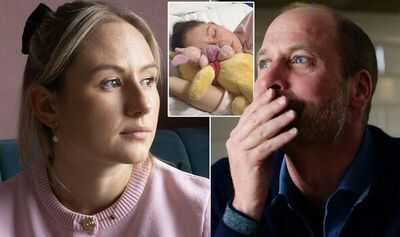
Last week I reported on the Prince of Wales's film discussing the impact of suicide, an eight-minute video that I haven't stopped thinking about since. As with many of these types of releases, I got an advanced preview of the film the day before it aired, and two things have stayed with me.
Firstly, the unimaginable pain Rhian Mannings went through after losing her husband to suicide just five days after her one-year-old son died from a seizure.
And secondly, William's words - "The best way to prevent suicide is to talk about it. Talk about it early, talk about it with your loved ones, those you trust, your friends" - as that's something I've never had the courage to do. But watching that film, hearing the devastating effect it had on Rhian and her family, and lauding the future king for urging people to speak up, I've found a strength I didn't know I had.
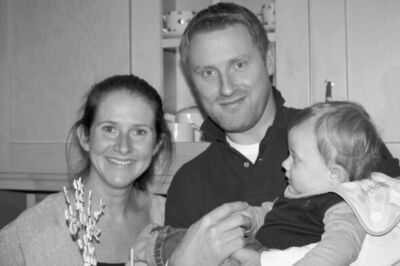
Over the years, I've been quite honest and upfront about my mental health issues, having had depression and anxiety since my late teens. And while I'm not afraid to talk about it, most people have no idea that underneath the bubbly young woman, there's a darkness that threatens to take over at any point.
But there's one period I haven't ever discussed, even with my closest friends and family. It's been buried like it never happened -but it did, and last week's film has empowered me to speak about it for the first time.
On April 23, 2016, I could no longer cope with the sadness that engulfed every fibre of my being. The darkness had become me and I just wanted it to stop.
I couldn't see a way out, a way forward. I had no hope left, and I didn't have the strength to keep fighting it. I just wanted to fall asleep and never wake up, so I didn't have to go through the daily agony I was experiencing.
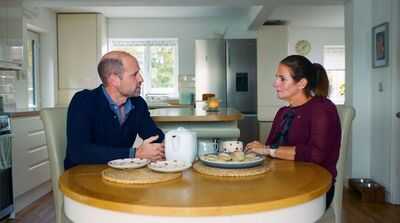
Even now, I struggle to put that feeling into words. It's one of hopelessness, despair, like the black cloud in my head had swallowed me whole, blocking out the daylight and any hope of feeling happy again. So one night, desperate for the torment I was feeling inside to stop, I decided to take action. The seconds, minutes, and hours afterwards are all a bit of a blur.
I remember my flatmates hugging me, the paramedics attaching cords to my chest and the painfully bright lights of A&E. I remember being prodded by needles, being told to try and stay awake and repeatedly throwing up the poisonous cocktail I had made. By the time I was moved to a ward, I remember trying to move from one bed to another, but my legs gave way. I couldn't stand up or hold my weight.
That was when I started to panic: What had I done?
Over the next few days, I was pumped full of all the right drugs and had someone check on me every half an hour. After a mental health assessment and my parents' reassurance that they would keep a watchful eye over me, I was discharged - not back to university, but back home.
Over the coming months, I began to heal, both physically and mentally, and threw myself into my hobby of bowls as a distraction. I returned to uni the following year, alongside my beloved friends, and moved on with my life - as if nothing had ever happened. It wasn't something I, my friends, or my family ever talked about.
Maybe it's because we didn't know how, maybe it's because of shame, and maybe because it didn't match up to who I was anymore.
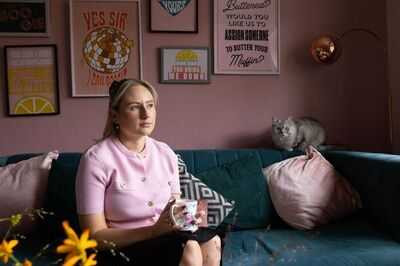
I still have low periods and panic attacks, but for the most part, I'm in control. I manage my triggers and know how to come out the other side. That was up until this summer, when for the first time in almost 10 years, the despair I had felt at uni came creeping back. It was terrifying. The suicidal thoughts I thought had completely gone away had come back.
I couldn't focus at work and bowls was no longer a distraction, as my anxiety had manifested itself into the yips, causing me to freeze. Instead of mindlessly delivering my bowls, I became paralysed and couldn't let them go. It was excruciating, having so many eyes on me as I stood like an idiot struggling to perform such a simple task.
But this time, I didn't bottle things up or hide how I was feeling. I confided in my boyfriend, my best friend, my parents, my doctor and my boss.
I took some time for myself, sought out a new therapist, changed medication and painfully persevered at bowls as I knew if I gave up, I would be turning my back on the sport I had loved for so many years.
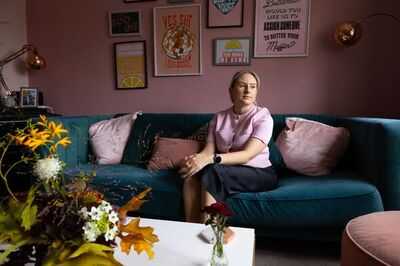
And now, as I've come out the other side a second time, I feel proud that I didn't give up. I'm grateful for the life I have, the career I've worked so hard for, the sport I give so much to, and my body for continuing to support me.
But most of all, I'm thankful to be surrounded by incredibly supportive family, friends and colleagues.
I don't know why depression chose to embed its claws in me; there's no hidden trauma, and I grew up surrounded by love. But I know one thing, I won't let it beat me. It's an inoperable tumour, but I'll do my best to keep shrinking it and preventing it from taking hold. And what's more, I hope that I'm not the only one that the prince has inspired to open up and talk about the invisible battles that affect so many people.
Writing this hasn't been easy, but I hope that by talking about how I've come through my own crisis, I can help others see that there is a way out, and the most important thing is to speak about how you're feeling. Whether that's to your doctor, or a trusted friend or family member. If that feels too hard, reach out - as I can attest, help is out there.
Information and support can be found at the Hub of Hope, the UK's largest mental health support directory hubofhope.co.uk Text SHOUT to 85258; or call the Samaritans free at any time on 116 123. Lines are open 24 hours a day. You can also email jo@samaritans.org
You may also like

60,000 poppy plants grown behind residence: 4 Indian-origin men charged in Canada

Air India Express brings festive flavours on board with a Diwali special 'Gourmair' meal

Novak Djokovic forced to apologise after Six Kings exit in X-rated interview

EC accuses ADR of mala fide motive to disrupt SIR

Five Batsmen Score Double Centuries in a Single Day of Ranji Trophy 2025-26






